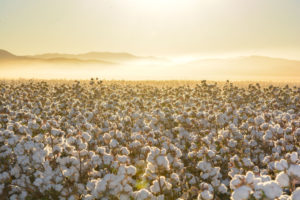
Image Source: Shutterstock
In recent years, there has been a growing awareness of the environmental impact of the fashion industry. As consumers become more conscious of their choices, there is a notable shift towards sustainable and eco-friendly options.
One area that has seen a positive transformation is high-quality baby knitwear, where the focus on sustainability is not only ensuring the well-being of little ones but also contributing to a greener and more responsible future.
Natural and Organic Materials:
One key aspect of sustainable baby knitwear is the use of natural and organic materials. Traditional baby clothing often incorporates synthetic fibres and harmful chemicals, but the sustainable baby knitwear movement embraces organic cotton, bamboo, and other natural materials. These fibres are not only gentle on a baby’s sensitive skin but also have a lower environmental impact throughout their lifecycle.
Low-Impact Dyeing Processes:
Conventional dyeing processes in the textile industry are notorious for their heavy use of water and toxic chemicals. Sustainable baby knitwear brands are adopting low-impact and water-saving dyeing techniques, reducing the overall environmental footprint. This shift ensures that vibrant and beautiful colours can be achieved without compromising environmental integrity.
Local and Ethical Production:
Another crucial aspect of creating a sustainable future through baby knitwear is the emphasis on local and ethical production. Brands are increasingly focusing on transparent supply chains, fair labour practices, and supporting local artisans. By doing so, they not only contribute to the socio-economic development of communities but also reduce the carbon footprint associated with long-distance transportation.
Longevity and Versatility:
Sustainable baby knitwear is designed with longevity in mind. High-quality materials and craftsmanship ensure that these garments can withstand the test of time and be passed down through generations. Additionally, many sustainable baby clothing brands are incorporating versatile designs that can adapt to different seasons, further reducing the need for frequent replacements.
Upcycling and Recycling Initiatives:
To combat the issue of textile waste, some innovative baby knitwear brands are implementing upcycling and recycling initiatives. They encourage parents to return outgrown or worn-out garments, which are then repurposed into new items. This closed-loop system helps minimise the environmental impact and promotes a more circular economy within the baby clothing industry.
Education and Conscious Consumerism:
A sustainable future also relies on educated and conscious consumers. Many sustainable baby knitwear brands actively engage in consumer education, providing information about the environmental impact of clothing choices and the benefits of choosing sustainable options. This awareness empowers parents to make informed decisions that align with their values and contribute to a healthier planet for future generations.
Supporting Fair Trade Practices:
In addition to ethical production, many sustainable baby knitwear brands are embracing fair trade practices. This involves ensuring that the artisans and workers involved in the production process receive fair wages and work in safe conditions. By supporting fair trade, these brands contribute to the overall well-being of communities involved in the production chain, fostering a sense of social responsibility.
Minimal Packaging and Plastic-Free Initiatives:
Sustainable baby knitwear brands are increasingly mindful of their packaging choices. Excessive packaging and single-use plastics contribute significantly to environmental pollution. Many eco-conscious brands are opting for minimal packaging, using recycled materials, and exploring plastic-free alternatives. This not only reduces waste but also reflects a commitment to holistic sustainability.
Collaboration with Environmental Initiatives:
To further their commitment to sustainability, some baby knitwear brands are collaborating with environmental organisations and initiatives. These partnerships often involve contributions to reforestation projects, carbon offset programs, or other environmental conservation efforts. By aligning with these initiatives, brands go beyond their immediate impact and contribute to larger-scale environmental restoration.
Technology and Innovation:
Sustainable baby knitwear is not only about traditional materials but also involves incorporating innovative technologies. Some brands explore eco-friendly alternatives to conventional synthetic fibers, such as recycled polyester or bio-based materials. This continuous exploration of new technologies ensures that sustainable baby knitwear remains at the forefront of environmentally friendly fashion.
Consumer Empowerment through Certifications:
To aid consumers in making sustainable choices, various certifications have emerged to validate eco-friendly and ethical practices in the fashion industry. Sustainable baby knitwear brands often seek certifications such as Global Organic Textile Standard (GOTS), OEKO-TEX, or Fair Trade to showcase their commitment to high standards. These certifications empower consumers to make informed decisions based on recognised industry benchmarks.
Community Engagement and Social Impact:
Beyond the environmental impact, sustainable baby knitwear brands actively engage with their communities. This may involve supporting local charities, investing in education programs, or participating in community development projects. By fostering a sense of community and social responsibility, these brands contribute to the broader goal of creating a sustainable and equitable future.
Conclusion:
As the demand for sustainable products continues to rise, the baby knitwear industry is proving that it’s possible to create adorable, comfortable, and eco-friendly clothing for little ones.
By prioritising natural materials, adopting responsible production practices, and fostering a culture of conscious consumerism, baby knitwear is playing a crucial role in shaping a sustainable future for both the fashion industry and the planet. As parents make thoughtful choices for their children, they contribute to a positive legacy that extends far beyond the nursery.





